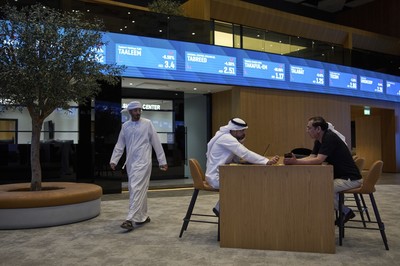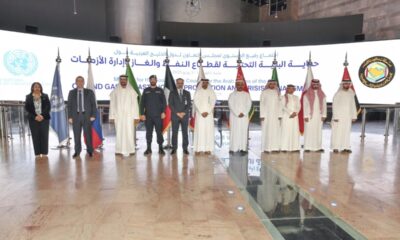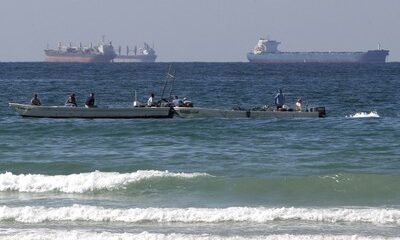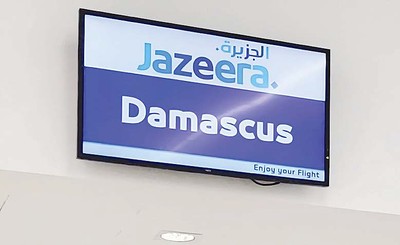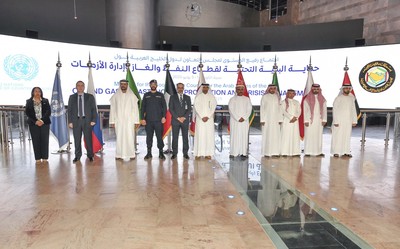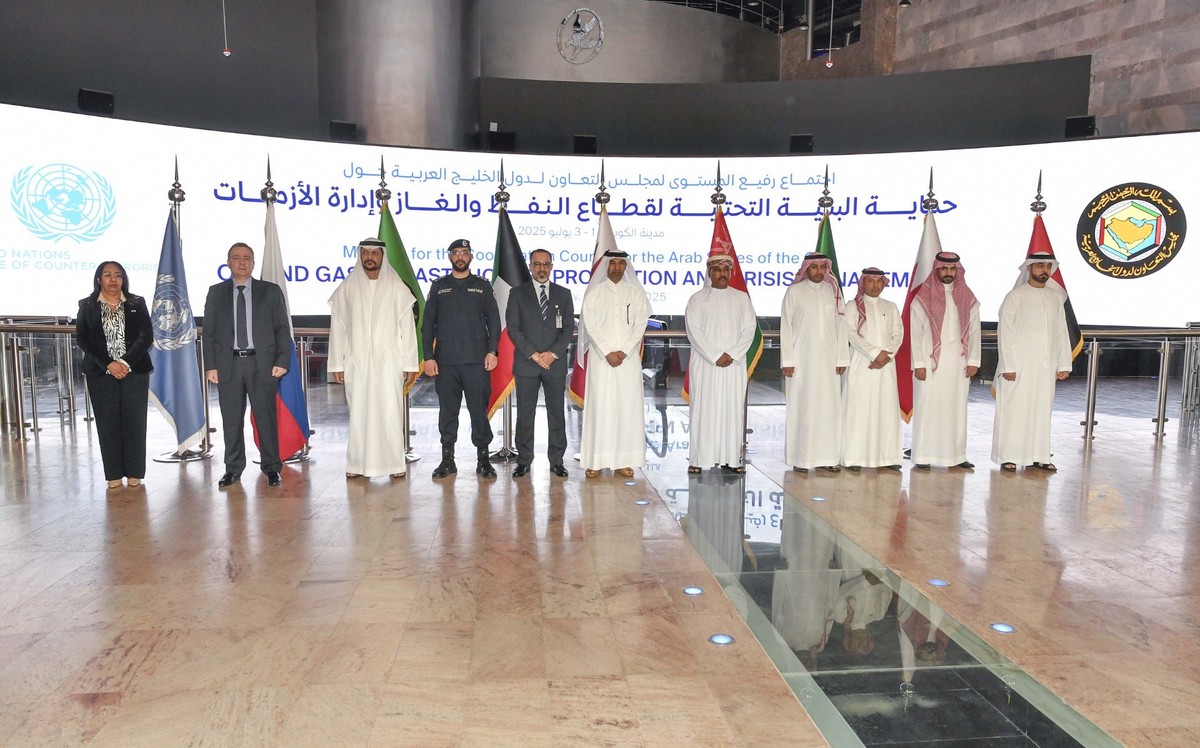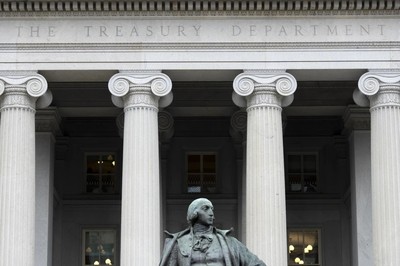DUBAI, United Arab Emirates, April 7, (AP): Middle East stock markets tumbled Monday as they struggled with the dual hit of the United States’ new tariff policy and a sharp decline in oil prices, squeezing energy-producing nations that rely on those sales to power their economies and government spending.
Benchmark Brent crude is down by nearly 15% over the last five days of trading, with a barrel of oil costing just over $64. That’s down nearly 30% from a year ago when a barrel cost over $90. That cost per barrel is far lower than the estimated break-even price for Saudi Arabia and most other countries producing energy in the Middle East.
That’s coupled with the new tariffs, which saw the Gulf Cooperation Council states of Bahrain, Kuwait, Oman, Qatar, Saudi Arabia and the United Arab Emirates hit with 10% tariffs. Other Middle Eastern nations face higher tariffs, like Iraq at 39% and Syria at 41%.
“With these measures and the expected retaliatory measures that could be adopted by other countries, the stability and predictability of international trade could be undermined,” the accounting firm PwC said in an advisory to its Mideast clients.
The Dubai Financial Market exchange fell 6% after it opened for the week, though it clawed back some losses to close at 3% down. Market leader Emaar Properties, down at one point by 9%, closed down 2.5%.
The Abu Dhabi Securities Exchange fell as much as 4% before closing down 2.5%. Markets that opened Sunday saw losses as well.
Saudi Arabia’s Tadawul stock exchange fell over 6% in trading then, though it closed Monday up 1%. The giant of the exchange, Saudi Arabia’s state-owned oil company Aramco, fell over 5% on its own on Sunday, wiping away billions in market capitalization for the world’s sixth-most-valuable company. It closed up 1.5% Monday.
The drop in Aramco, whose shares also power Crown Prince Mohammed bin Salman’s expansive plans to reshape the kingdom’s economy, ties directly back to the overall price of oil.
Last week, OPEC+ members Algeria, Iraq, Kazakhstan, Kuwait, Oman, Russia, Saudi Arabia and the UAE agreed to speed up the introduction of more oil into the market.
This month marks the first oil production increase by the group since 2022. “OPEC+ has shifted its market management strategy from a steady incremental increase in output to monthly announced targets, bringing forward higher output levels for May this year,” an analysis published Monday by the state-majority-owned Emirates NBD Bank of Dubai said.
“That will leave oil markets grasping with additional volatility as they assess the negative impact on global trade of the tariffs announced by the Trump administration.”
James Swanston, a Middle East and North Africa analyst at Capital Economics, warned Gulf countries likely face “a tough 2025.” “Against this backdrop, governments will almost certainly be forced to scale back fiscal support and, in the likes of Saudi Arabia, Bahrain and Oman, turn to outright austerity measures through spending cuts and potentially raising non-oil revenues via taxation,” Swanston wrote.
The Qatar Stock Exchange fell over 4% Sunday and slightly down as trading resumed Monday. Boursa Kuwait fell over 5% on Sunday, with slight losses again Monday. The Pakistan Stock Exchange fell rapidly Monday, with Islamabad facing 29% tariffs from the U.S.
The exchange suspended trading for an hour after a 5% drop in its main KSE-30 index, before closing down 3.3% overall. “We may face this situation until the uncertainty ends at the global market,” said Mohammed Sohail, the chief executive at Topline Securities.
Pakistan’s Finance Minister Muhammad Aurangzeb said over the weekend that Islamabad will send a delegation to the United States soon to negotiate. The U.S. imports around $5 billion worth of textiles and other products from Pakistan, which heavily relies on loans from the International Monetary Fund and others.
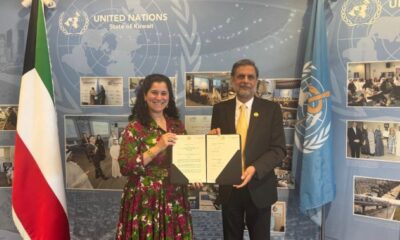
 Latest News13 hours ago
Latest News13 hours ago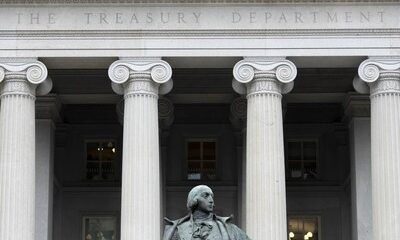
 Business17 hours ago
Business17 hours ago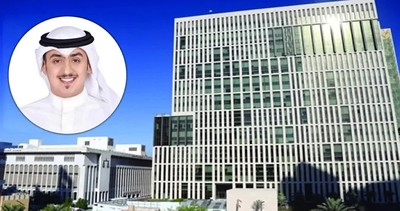
 Politics20 hours ago
Politics20 hours ago
 Politics18 hours ago
Politics18 hours ago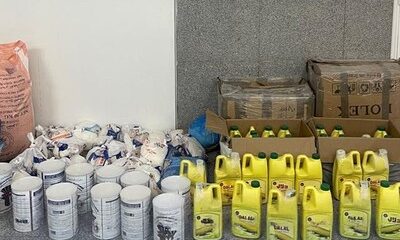
 Politics7 hours ago
Politics7 hours ago
 Politics10 hours ago
Politics10 hours ago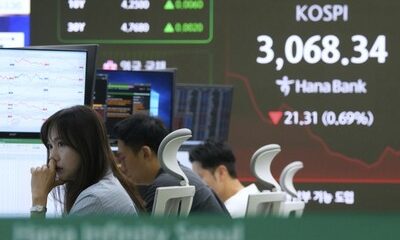
 Business21 hours ago
Business21 hours ago
 Politics8 hours ago
Politics8 hours ago
